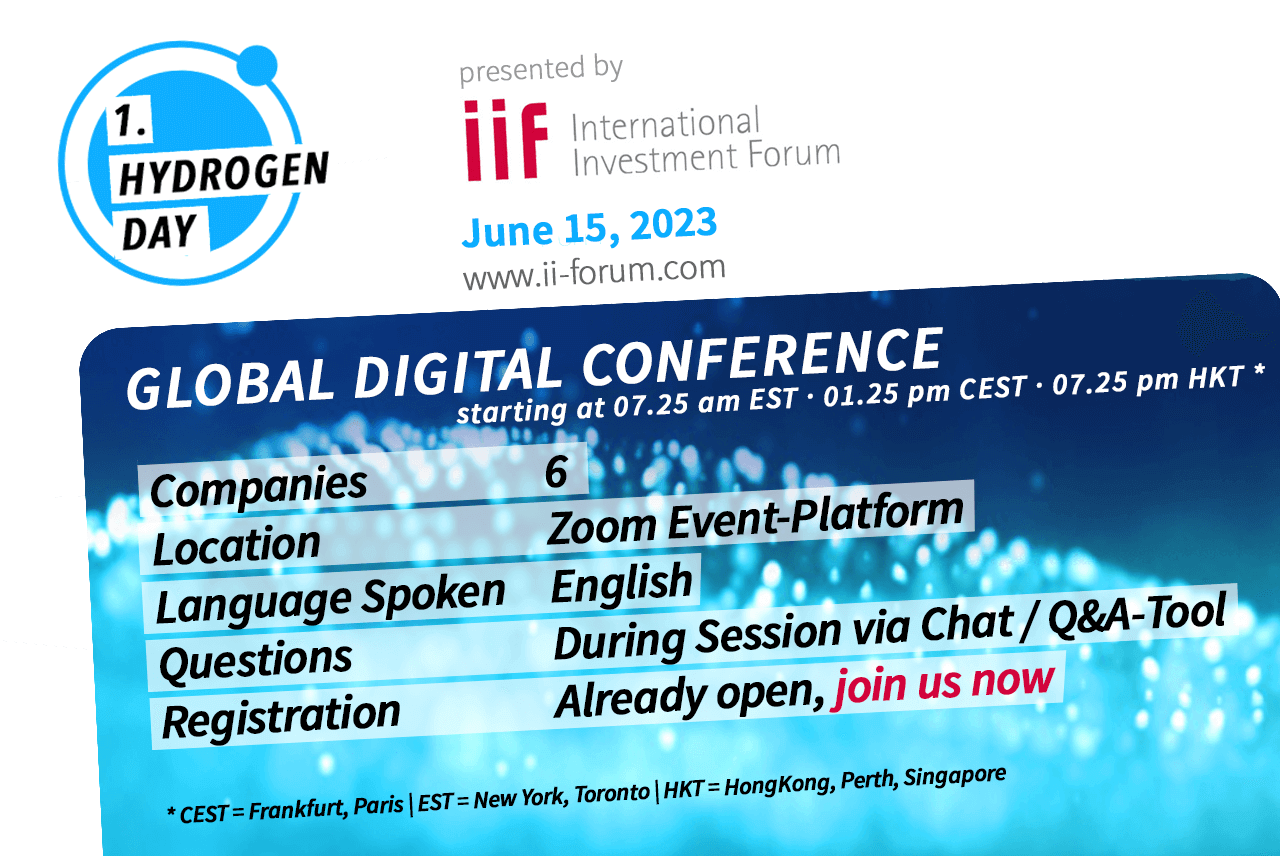June 9th, 2023 | 07:30 CEST
Defence Therapeutics, Bayer AG, Palantir Technologies - Networked data revolutionizes the future of production
In the battle against cancer, the Canadian biotech company Defence Therapeutics is focusing on pancreatic cancer cells. They are currently conducting a new study that aims to develop a vaccination against pancreatic cancer. A crucial factor driving this project is the utilization of networked data. Bayer AG is also active in Canada. The Company is partnering with Acuitas to develop new business areas in the field of mRNA-based gene therapy. Palantir Technologies' move to become active in the energy sector is also new. A battery plant in North America serves as a sandbox for this. We provide insight into the latest developments for investors with a growth strategy.
time to read: 4 minutes
|
Author:
Juliane Zielonka
ISIN:
DEFENCE THERAPEUTICS INC | CA24463V1013 , BAYER AG NA O.N. | DE000BAY0017 , PALANTIR TECHNOLOGIES INC | US69608A1088
Table of contents:

"[...] Defence will continue to develop its Antibody Drug Conjugates "ADC" and its radiopharmaceuticals programs, which are currently two of the hottest products in demand in the pharma industries where significant consolidations and take-overs occurred. [...]" Sébastien Plouffe, CEO, Founder and Director, Defence Therapeutics Inc.
Author
Juliane Zielonka
Born in Bielefeld, she studied German, English and psychology. The emergence of the Internet in the early '90s led her from university to training in graphic design and marketing communications. After years of agency work in corporate branding, she switched to publishing and learned her editorial craft at Hubert Burda Media.
Tag cloud
Shares cloud
Defence Therapeutics: Vaccine against pancreatic cancer successfully enters next trial
Pancreatic cancer is an insidious disease and is predicted to be the second leading cause of death by 2030. This cancer is typically only discovered when it is too late. Now an AI project from Germany is causing a stir, because thanks to strategically secure networked health data patients can be treated better. They would thus regain their quality of life.
The right data also play an important role at the Canadian biotech company Defence Therapeutics. The Company is an expert in AI-supported platform technology. Defence Therapeutics has developed a revolutionary approach to transforming so-called mesenchymal stromal cells (MSCs) into potent antigen-presenting cells. MSCs are found in bone marrow and adipose tissue in adult humans. It is, therefore, ethically justifiable and easier for researchers and physicians to work with these MSC cells in cancer research. At least sooner than with embryonic stem cells.
Thanks to the method developed by Defence Therapeutics, effective antitumor responses against solid tumors can be developed. In vivo animal trials with solid T-cell lymphomas and melanomas reveal: The potential vaccine is consistently effective, leading to complete tumor regression in 80-100% of treated animals.
The biotech company is moving forward in research, focusing on pancreatic cancer cells. In the new study, the lysate from the Pan02 cell line, which serves as a source of tumor antigens, is mixed with the A1 dimer before the MSCs are inoculated in vitro. The final ARM vaccine is then administered to allogeneic animals in combination with the anti-PD-1 immune-checkpoint inhibitor.
"This trial is designed to demonstrate the efficacy of Defence Therapeutics' ARM vaccine in the treatment of fatal pancreatic cancer where standard therapy has failed and to confirm the versatility of this universal standard vaccine. Developing a pancreatic cancer vaccine capable of eradicating this disease would be a major step in the global fight against cancer", says Sébastien Plouffe, CEO and Director of Defence Therapeutics.
As with BioNTech in the fight against cancer, Defence Therapeutics is on par with big pharma in terms of innovation. Investors who sense the market power of biotech combined with connected data and platform technology should start early to recognize the opportunities there.

Bayer AG partners with Canadian gene therapy company Acuitas
For Bayer AG, Canada is also a country with flourishing trade relations opening up. The Leverkusen-based company is entering into a collaboration with Acuitas Therapeutics Inc. to gain access to the Canadian biotech company's lipid nanoparticle (LNP) technology and further strengthen its gene therapy portfolio. The global gene therapy market was estimated to be worth EUR 6.79 billion in 2022 and is expected to reach EUR 16 billion by 2027. Estimated to grow at a compound annual growth rate (CAGR) of 18.6% from 2022 to 2027.
Bayer and its subsidiary Asklepios BioPharmaceutical (AskBio) will gain access to Acuitas' highly potent ionizable lipid technology and LNPs through the development agreement with a licence option. This will enable efficient and targeted delivery of gene-editing RNA components to the liver. The technology is market-ready, and manufacturing can be carried out in a scalable manner. This could advance the clinical drug development of Bayer and AskBio's in vivo gene editing programs.
"Developing therapies at scale is essential to provide breakthrough innovations to patients who don't have time to wait," said Jost Reinhardt, Head of Cell and Gene Therapy at Bayer's Pharmaceuticals Division. "The addition of Acuitas' clinically validated and scalable LNP technology to our genomic medicine portfolio is another important step in expanding our leadership in cell and gene therapies."
Palantir and Panasonic Energy North America develop connected factory
Today, Palantir Technologies and Panasonic Energy Co. Ltd, a Panasonic company and the world's leading manufacturer of high-quality lithium-ion batteries, announced a multi-year partnership. The two will work on a "Smart Factory" for Panasonic Energy of North America's (PENA) plant in Sparks, Nevada. Palantir has been selected as a partner to use its Foundry technology to help integrate edge sensors into production lines, introduce automated improvements and enable connected operations for factory workers. Through this agreement, Palantir is expanding its signature platform to include artificial intelligence and edge capabilities in manufacturing.
Through Foundry technology, the "Smart Factory" will be deployed in PENA's IT and operations processes. The system will use Foundry to drive operational decision-making at the existing Nevada factory and, starting in 2025, at the new De Soto, Kansas facility. This strategic partnership will enable Panasonic Energy North America to achieve significant cost savings and increase return on investment quickly.
"We engaged Palantir to help us on our journey to a connected factory by addressing the challenges of disparate data systems and manual workarounds that lead to inaccurate data analytics," says Justin Herman, Chief Information Officer of PENA. "With Foundry, we were able to operationalize our data and reduce waste across our manufacturing process in a matter of months. Across multiple use cases in different functional groups, Foundry is helping PENA drive operational excellence, empowering our people through accurate data-driven decision-making and delivering significant ROI per year. And we are just getting started."
Defence Therapeutics is developing a promising treatment for pancreatic cancer. By using strategically networked health data, patients can be better treated. Bayer enters new business areas through strategic partnerships and gains access to Acuitas' lipid nanoparticle technology to strengthen its gene therapy portfolio and make advances in gene editing. Palantir Technologies is now testing its AI optimization on battery power. With Panasonic Energy North America, the two are collaborating on a "Smart Factory" using Palantir's Foundry technology to introduce connected operations and automated improvements. This collaboration enables efficient and precise production in the manufacturing industry.
Conflict of interest
Pursuant to §85 of the German Securities Trading Act (WpHG), we point out that Apaton Finance GmbH as well as partners, authors or employees of Apaton Finance GmbH (hereinafter referred to as "Relevant Persons") may hold shares or other financial instruments of the aforementioned companies in the future or may bet on rising or falling prices and thus a conflict of interest may arise in the future. The Relevant Persons reserve the right to buy or sell shares or other financial instruments of the Company at any time (hereinafter each a "Transaction"). Transactions may, under certain circumstances, influence the respective price of the shares or other financial instruments of the Company.
In addition, Apaton Finance GmbH is active in the context of the preparation and publication of the reporting in paid contractual relationships.
For this reason, there is a concrete conflict of interest.
The above information on existing conflicts of interest applies to all types and forms of publication used by Apaton Finance GmbH for publications on companies.
Risk notice
Apaton Finance GmbH offers editors, agencies and companies the opportunity to publish commentaries, interviews, summaries, news and the like on news.financial. These contents are exclusively for the information of the readers and do not represent any call to action or recommendations, neither explicitly nor implicitly they are to be understood as an assurance of possible price developments. The contents do not replace individual expert investment advice and do not constitute an offer to sell the discussed share(s) or other financial instruments, nor an invitation to buy or sell such.
The content is expressly not a financial analysis, but a journalistic or advertising text. Readers or users who make investment decisions or carry out transactions on the basis of the information provided here do so entirely at their own risk. No contractual relationship is established between Apaton Finance GmbH and its readers or the users of its offers, as our information only refers to the company and not to the investment decision of the reader or user.
The acquisition of financial instruments involves high risks, which can lead to the total loss of the invested capital. The information published by Apaton Finance GmbH and its authors is based on careful research. Nevertheless, no liability is assumed for financial losses or a content-related guarantee for the topicality, correctness, appropriateness and completeness of the content provided here. Please also note our Terms of use.




